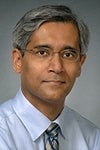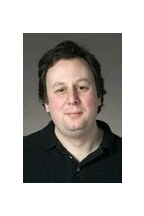Professor Information:
William (Bill) Bishop is the Director of Admissions for the Faculty of Engineering at the University of Waterloo. In this role, Bill is responsible for managing the Engineering Admissions Team working in the Engineering Undergraduate Office. This team processes all applicants to undergraduate engineering programs. This team also handles all transfers into first year undergraduate engineering programs.
Dr. Bishop has an appointment as a Continuing Lecturer in the Department of Electrical and Computer Engineering at the University of Waterloo. In this capacity, he teaches undergraduate courses in the areas of engineering design, digital design, and embedded systems. Dr. Bishop's research interests include engineering education, configurable computing, parallel and distributed systems, hardware and software co-design, embedded systems, and multimedia processing.
He has received recognition for his teaching, research, and service. He is a recipient of an Outstanding Performance Award in 2009, 2013, and 2020. He is a recipient of the James A. Field Teaching Excellence Award in 2006 and 2011. He was recognized with a Ontario Volunteer Service Award in 2019 for 15 years of service with the Waterloo Wellington Science and Engineering Fair. Dr. Bishop currently holds memberships with Professional Engineers of Ontario (PEO), Ontario Society of Professional Engineers (OSPE), the Canadian Engineering Education Association (CEEA), and the Institute of Electrical and Electronics Engineers (IEEE). He is a member of the Computer, Aerospace, and Education Societies of the IEEE.
-
Engineering admissions
-
Engineering education
-
Configurable computing
-
Parallel and distributed systems
-
Hardware / software co-design
-
Embedded systems
-
Image processing
-
Multimedia systems and applications
Mark Aagaard is an Associate Professor in the Department of Electrical and Computer Engineering at the University of Waterloo.
His research interests include formal methods for the design and verification of digital-hardware systems. He has developed a formal theory for pipelined circuits based on the conventional ideas of structural hazards, control hazards, data hazards and datapath functionality. Dr. Aagaard’s current research activities use different formalization aspects of pipeline hazards to explore new design and verification techniques for varying classes of hazards.
Some recent projects of Dr. Aagaard’s include verifying data-hazard accuracy, exploiting the power and usability of an off-the-shelf combinational equivalence checker, and developing a prototype design and verification tool that includes a cell library of control components for pipeline stages. Dr. Aagaard also took part in creating the Microbox framework for microprocessor correctness statements, where over 30 published verification results were analyzed and proved correctness statement conditions.
- Formal verification, Design and verification of digital hardware system, Computer architecture, Computer & software engineering, Connectivity and internet of things, Wireless communications and networks, Cybersecurity, Application security, Information security, Infrastructure integrity, Network Security, Connectivity and Internet of Things, IoT, Devices, Application domains, Dependability and security
Vincent Gaudet is a Professor in the Department of Electrical and Computer Engineering at the University of Waterloo.
His research interests focus on high-speed and energy-efficient microelectronic circuits applied to digital communication systems and signal processing. He is particularly interested in stochastic computing systems and multiple-valued logic. He has worked on low-density parity-check (LDPC) and turbo decoders, multiple-access channels, implantable neural recording systems, and integrated lab-on-chip instrumentation circuitry.
Professor Gaudet is currently a Senior Member of the IEEE, and holds many editorial positions. In 2009, he received the Petro Canada Young Innovator Award to recognize and support his work of outstanding young faculty-based research.
- VLSI circuits, Analog circuits, Mixed-signal circuits, Digital circuits, CMOS design, Low-power circuits, LDPC decoding, Turbo decoding, Iterative decoding, Stochastic computation, Connectivity and Internet of Things, Digital design and fabrication technologies, Embedded systems, Information systems, Sensors and devices, Wireless communications/networking, Microelectronic circuits, Digital communications, signal processing, Connectivity and Internet of Things, IoT, Devices
Catherine H. Gebotys is a Professor in the Department of Electrical and Computer Engineering at the University of Waterloo.
Her current research interests include embedded systems security, side channel analysis for secure devices, security countermeasures for cryptographic algorithms, and countermeasures for hardware hacking – side channel, fault injection, microprobing and reverse engineering.
Professor Gebotys is the sole inventor of several patents and has also received numerous awards, including the CITO Champions of Innovation Award. In addition, she has collaborated with several companies including DRDC, XtremeEDA, Blackberry, Motorola, ViXS, and COMDEV.
Professor Gebotys has published a number of research papers in the areas of side channel analysis, embedded security, applied optimization for high-level hardware and software synthesis. She is the author of Security in Embedded Devices, as well as the co-author of Optimal VLSI Architectural Synthesis: area, performance and testability.
-
Embedded security
-
Security countermeasures
-
Side channel analysis
-
Fault injection analysis
-
Photon emissions analysis
Anwar Hasan is the Ripple Chair and a Professor in the Department of Electrical and Computer Engineering at the University of Waterloo. He is also a faculty member at the Centre for Applied Cryptographic Research. From January 2013 to April 2018, he was the Faculty of Engineering's Associate Dean of Research and External Partnerships.
Professor Hasan’s research interests include cryptographic computations and embedded systems, dependable and secure computing, and security for cloud and Internet of Things.
He has made contributions to multiple books, journal and conference articles and has also received several awards for his many achievements in research.
- Cryptographic Hardware, Embedded systems, Dependable and Secure Computing, Computer Arithmetic, Computer Architecture, Computer Security, Network Security, Computer & Software Engineering, Cloud Technology, Security, Cybersecurity, Blockchain, Privacy and cryptography, Information security, Network security, Operational security
More information coming soon!
-
Digital systems
-
Embedded computing systems
-
Reconfigurable computing
-
FPGA Architecture
-
Applications
-
Compiler
More information coming soon!
Andrew Morton, PhD, PEng is a Continuing Lecturer in the Electrical and Computer Engineering department at the University of Waterloo. He teaches students in the Computer Engineering, Electrical Engineering and Mechatronics Engineering programs, focusing on digital hardware and real-time systems.
Andrew’s interests include computer architecture, embedded systems design, real-time scheduling, and applied optimization.
- Computer architecture, embedded systems, real-time systems, applied optimization
Chrystopher Nehaniv is a full professor in the departments of Systems Design Engineering and Electrical and Computer Engineering at the University of Waterloo (since August 2018). He is a Mathematician, Computer Scientist, Complex Adaptive Systems Researcher. He is also affiliated with the University of Hertfordshire in the United Kingdom, where he served as Director of the Centre for Computer Science & Informatics Research prior to coming to Canada, leading research in the Algorithms, Adaptive Systems, and Wolfson Royal Society Biocomputation Research Groups there as Professor of Mathematical and Evolutionary Computer Sciences. Previously, he held positions as full professor at the University of Aizu in Japan, and visiting professor in Mathematics at Ibaraki National University, Japan, and at the Institute for Mathematics & Informatics at the University of Debrecen in Hungary, as well as post-doctoral research fellow and lecturer in Mathematics at the University of California, Berkeley. He is founder of the Waterloo Algebraic Intelligence & Computation Laboratory (WAICL), and with Prof. Kerstin Dautenhahn, a co-founder of the University of Waterloo's Social and Intelligent Robotics Research Laboratory (SIRRL). Professor Nehaniv is also a member of the Waterloo AI Institute and the steering committee of the Waterloo Institute for Complexity and Innovation (WICI). He serves as Associate Editor for the journals BioSystems, IEEE Transactions on Cognitive and Developmental Systems, Interaction Studies, and Complexity, and previously as Topic Editor-in-Chief of the International Journal of Advanced Robotic Systems for the topics of AI Robotics and Human-Machine/Robot Interaction, and has served on the IEEE Task Force for Artificial Life and Complex Adaptive Systems since its founding in 2003, as Chair (2012-2018), Vice Chair (2018-), and on the IEEE Cognitive and Developmental Systems Technical Committee (2019-) of the IEEE Computational Intelligence Society.
-
Algebraic Methods in Algorithms & Applications
-
Artificial Intelligence
-
Artificial Life & Complex Adaptive Systems
-
Algebra & Discrete-Event Dynamical Systems:
-
Automata, Permutation Groups, Transformation Semigroups, Interaction Machines, Models of Time
-
Systems Biology & Neuroscience: Mathematical & Computational Methods
-
Gene-Regulatory Networks & Differentiated Multicellularity
-
Interactive Systems Design
-
Cognitive Architectures for AI Robotics
-
Enactive Experiential & Temporally Extended Intelligence
-
Evolvability
-
Cognitive\/Social\/ Skill & Linguistic Development in Animals & Artifacts
-
Dynamic Networks
-
Whole-Part Relations\/Natural Subsystems
-
Global Hierarchical Coordinate Systems for Understanding\/Prediction\/Manipulation in STEM
Hiren Patel is a Professor in the Department of Electrical and Computer Engineering at the University of Waterloo. Prior to the University of Waterloo, Hiren was a postdoctoral fellow at the University of California, Berkeley working in the Ptolemy group with Edward A. Lee.
His research is in the design, analysis, and implementation of computer hardware and software. Currently, his research areas of interest are in real-time embedded systems, computer architecture, hardware architectures for machine learning and artificial intelligence, and security.
- Cyber-physical and hybrid systems, Embedded systems and real-time embedded processor architectures, Hardware and software co-design methodologies, System-level design and verification methodologies, Models of computation, Computer Architecture, Compilers, Connectivity and Internet of Things, Cybersecurity, Infrastructure integrity, IoT, Communications and Access
Rodolfo Pellizzoni is a Professor in the Department of Electrical and Computer Engineering at the University of Waterloo.
His main research focus is the development of new hardware and software architectures for Cyber-Physical Systems - the next generation of high-performance, safety-critical embedded systems. Due to the requirements imposed by these systems in term of performance, safety and timing predictability; it is a multidisciplinary effort involving embedded system architecture and hardware/software co-design, real-time resource management, timing analysis and operating systems.
In addition to his research work, Dr. Pellizzoni has published over 50 refereed journal articles, refereed conference proceedings, workshop publications and technical reports.
- Embedded Systems Architectures, Cyber-Physical Systems, Real-Time Operating Systems and Resource Management, autonomous and connected car, Connectivity and Internet of Things, Automotive, cybersecurity, Infrastructure integrity, IoT, Devices, Dependability and security
Manoj Sachdev is a Professor in the Department of Electrical and Computer Engineering at the University of Waterloo. His research interests include low power and high performance digital circuit design, mixed-signal circuit design, and test and manufacturing issues of integrated circuits. He has contributed to over 180 conference and journal publications, and has written 5 books. He also holds more than 30 granted US patents.
Professor Sachdev, along with his students and colleagues, have received several international research awards. He is a Fellow of the Institute of Electrical and Electronics Engineers (IEEE), and Fellow of the Engineering Institute of Canada. Professor Sachdev serves on the editorial board of the Journal of Electronic Testing: Theory and Applications. He is also a member of program of IEEE Custom Integrated Circuits Conference.
- Digital circuit design for low power, low voltage applications, High performance mixed-signal circuit design, Robust design practices for VLSI, VLSI testing and design, VLSI quality, VLSI reliability, VLSI improvement techniques, Circuits Design & VLSI, Cybersecurity, Application security, Network security
Paul Ward is an Associate Professor in the Department of Electrical and Computer Engineering at the University of Waterloo. He is also a faculty fellow at the IBM Centre for Advanced Studies.
Professor Ward’s expertise lies in the area of distributed systems and computer networks. In distributed computing, his work focuses on distributed-application management, and more generally on dependable and self-managing distributed systems, with a recent focus on fault detection and diagnosis in Web Services. Professor Ward’s work in networks focuses on raising the abstraction level of the network from one of packet delivery to a service-oriented network, specifically concentrating on problems of service discovery, and the problem of semantic coupling, both of functional and non-functional attributes. He has also studied problems of capacity and fairness in wireless mesh networks and routing in delay-tolerant networks.
Professor Ward co-holds two patents; ‘Brokering Web Mobile Services’ which provides a novel mobile web services discovery method that is capable of fulfilling the requirements from both the clients and providers. His second patent is a ‘Method for Solving Application Failures using Social Collaboration’ in which a computer-implemented method, system and computer usable program code for solving an application failure using social collaboration are provided.
- Distributed systems management, Dependable distributed systems, Autonomic computing, Peer-to-peer computing, Wireless mesh, Mobile ad hoc networks, Communication Systems, Information Systems, Computer Engineering, Software Engineering, Connectivity and Internet of Things, IoT, Devices, Application Domains, Communications and Access, Networking and Data, Dependability and security
Seyed Zahedi is an Assistant Professor in the Department of Electrical and Computer Engineering at the University of Waterloo. His research focuses on the intersection of computer architecture, computer systems, and theoretical computer science.
General fields of application of the research programs include:
-
Energy/reliability/security-aware very-large-scale integration (VLSI) systems
-
Configurable computing, distributed computing, and autonomic computing
-
IC design for low power/voltage
-
Co-operative intelligent system design
-
3D IC design
-
Cyber-physical/hybrid systems
-
Embedded and real-time processors/systems
-
Hardware and software co-design methodologies
-
Formal verification methodologies













